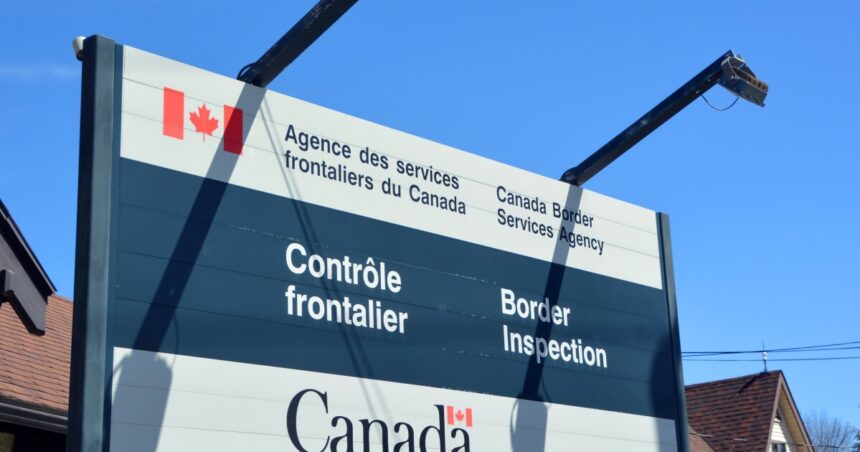Canadian border agents are getting ready to strike on Friday — potentially causing travel disruptions for nearly 400,000 people who cross the U.S.-Canada border daily — unless the government agrees to a new labor agreement.
The Public Service Alliance of Canada and the Customs and Immigration Union — the two unions representing Canada Border Services Agency employees — have given the country’s Treasury Board until 4 p.m. ET to reach an agreement at the bargaining table. If a new contract is not reached by then, over 9,000 CBSA employees will participate in a nationwide strike.
“We are still hopeful that we can reach an agreement to avoid strike action and any potential delays at Canada’s borders,” said Sharon DeSousa, PSAC national president. “But the clock is ticking for Trudeau’s Liberal government to get to work on a fair contract for our members.”
Border agents advocating for the new agreement have been without a contract for over two years, according to PSAC. The union mentioned they are seeking a pay raise to match the wages of the country’s other law enforcement agencies, as well as options for remote work or telework, improved retirement benefits, and enhanced workplace protections.
“Our members have overwhelmingly stated they are ready to fight for fair wages, fair retirement benefits, and to make CBSA a better workplace,” said Mark Weber, CIU national president. “It’s time for the government to support CBSA employees.”
In May, PSAC members voted 96% in favor of a strike mandate, with mediation sessions commencing on June 3. The union expressed that if a strike were to occur, over 90% of front-line border officers, considered essential workers, would still provide essential services. However, the potential for slower traffic at the country’s national entry points remains a threat.
In 2021, a work-to-rule action caused significant delays at airports and the nation’s borders until an agreement was reached following 36 hours of mediation between the government and border unions.
A strike also disrupts the supply chain between the U.S. and Canada. The two countries traded $3.6 billion worth of goods and services across the border daily in 2023, as reported by Canada. Data from the Bureau of Transportation Statistics indicates that trucks carried 55% of freight between the two countries in 2022.
The Canadian Trucking Alliance urged border employee unions and the federal government to reach an agreement to safeguard the country’s trade investments and partnership with the U.S., especially amidst potential disruptions due to railway labor negotiations and ongoing volatility in the trucking sector.
The Treasury Board of Canada stated on Wednesday that the current strike threat hampers bargaining efforts and disrupts the services expected by residents when crossing the border.
“Negotiation involves give and take. The government is willing to make concessions, but there must be progress on both sides,” stated the Board. “We are disappointed that PSAC has threatened labor disruptions when we are prepared to negotiate and reach a fair agreement through good faith bargaining.”
If a strike occurs on Friday, the Mohawk Council of Akwesasne confirmed that the domestic lane will remain open from 7 a.m. to 11 p.m. daily, with assurances from Cornwall Port of Entry officials that travelers will cross safely and efficiently.
However, the council warned of increased wait times, picketing, and the wearing of union-related accessories. The CBSA assured that any delays will be promptly addressed and travelers will be updated on its website.





